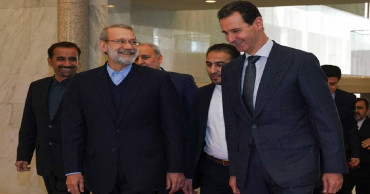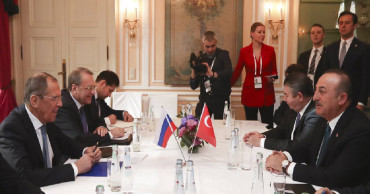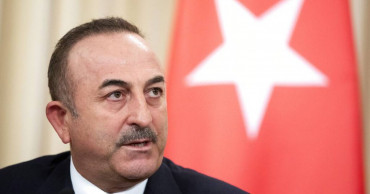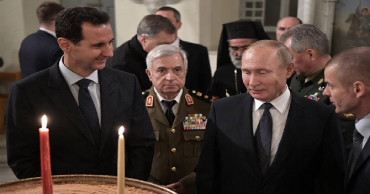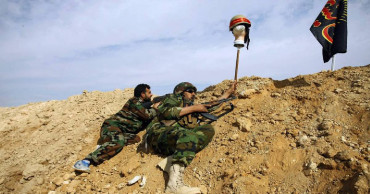Syrian President Bashar Assad
Assad flees to Moscow after fall of Damascus: Russian state media
Syrian President Bashar Assad has fled to Moscow after losing control of Damascus to rebel forces in a swift and dramatic advance that ended his family’s half-century-long rule. Russian state media reported that Assad was granted asylum by Moscow, his longtime ally, following negotiations with insurgent groups.
The rebel victory sparked widespread celebrations in Damascus, with residents taking to the streets to mark what they called a new chapter for Syria. Gunfire echoed in celebration as people waved revolutionary flags, reminiscent of the Arab Spring protests that initially called for reforms before spiraling into Syria’s nearly 14-year-long civil war.
U.S. President Joe Biden hailed Assad's downfall as a “fundamental act of justice,” crediting international efforts to weaken Assad’s allies, including Russia, Iran, and Hezbollah. However, Biden acknowledged the risks and uncertainties ahead, emphasizing the need to evaluate the actions of the victorious rebel factions.
Rebels Assert Control
Syrian state media confirmed that Assad had relinquished power and fled, with insurgents taking control of major institutions in Damascus. Rebel leaders, including Abu Mohammed al-Golani of Hayat Tahrir al-Sham (HTS), vowed to establish a pluralistic and inclusive state. Al-Golani, formerly associated with al-Qaida, described Assad’s departure as a victory for the Islamic nation and renounced sectarian governance in favor of national unity.
Amid the celebrations, Damascus residents prayed in mosques and roamed the streets, chanting anti-Assad slogans. Meanwhile, rebel forces sought to reassure minority groups, including Druze, Alawites, and Christians, promising equal treatment for all Syrians.
Read: Who is Abu Mohammed al-Julani, leader of HTS in Syria?
“We won’t repeat Assad’s mistakes,” said rebel commander Anas Salkhadi in a televised statement, appealing for calm and unity among the nation’s diverse communities.
Challenges Ahead
The transition poses significant challenges as Syria remains divided among rival factions. Turkish-backed opposition groups continue to clash with U.S.-allied Kurdish forces in the north, while remnants of the Islamic State remain active in remote areas.
The fall of Assad marks a turning point in the region, further weakening Iran and Hezbollah, both of which played key roles in supporting his regime. Iran’s ambassador to Syria acknowledged the government’s inability to resist the rebels and called for a peaceful resolution to prevent further bloodshed.
International actors, including the United Nations and regional powers, are calling for an orderly political transition to prevent the country’s collapse. Emergency meetings in Geneva and Qatar have underscored the urgency of coordinating efforts among global stakeholders.
Regional Repercussions
Assad’s ouster has also reignited tensions along Syria’s borders. Israel announced the capture of a buffer zone in the Golan Heights, citing security concerns following the Syrian army's retreat. The Arab League condemned Israel’s actions, accusing it of exploiting Syria’s crisis to expand its territorial claims.
Read more: Syria’s opposition declares Damascus free from Assad regime
As Syrians grapple with the aftermath of Assad’s fall, the road ahead remains fraught with uncertainty. For many, the priority is rebuilding their war-torn nation while ensuring peace and stability in a deeply fractured society.
Source: With inputs from agencies
1 year ago
Assad's forces make advances, further securing Aleppo region
Syrian troops have made significant advances against the last rebel held enclaves in the country's northwest, state media said on Sunday, consolidating the government's hold over the key Aleppo province.
6 years ago
Turkey, Russia to discuss grave situation in Syria's Idlib
A Turkish delegation will travel to Russia on Monday to discuss the situation in Syria's Idlib province amid mounting fears of a humanitarian disaster there, Turkey's foreign minister said.
6 years ago
Turkey's FM urges Russia to halt Syrian government attacks
Turkey's foreign minister urged Russia on Wednesday to halt the Syrian government's attacks in the war-torn Arab country, a day after airstrikes on rebel-held sectors and the shelling of government-held areas killed at least 17 people, including an entire family.
6 years ago
Putin visits Damascus, meets Syrian president
Russian President Vladimir Putin arrived in Damascus on Tuesday and met with Syrian President Bashar al-Assad, state news agency SANA reported.
6 years ago
Iranian general transformed Syria's war in Assad's favor
When Syrian President Bashar Assad made a rare visit to Tehran last year, the powerful Revolutionary Guard commander Qassem Soleimani was there to greet him, along with Iran's supreme leader and president. Iran's foreign minister wasn't, and he resigned in protest at being excluded from talks with a crucial ally.
6 years ago

